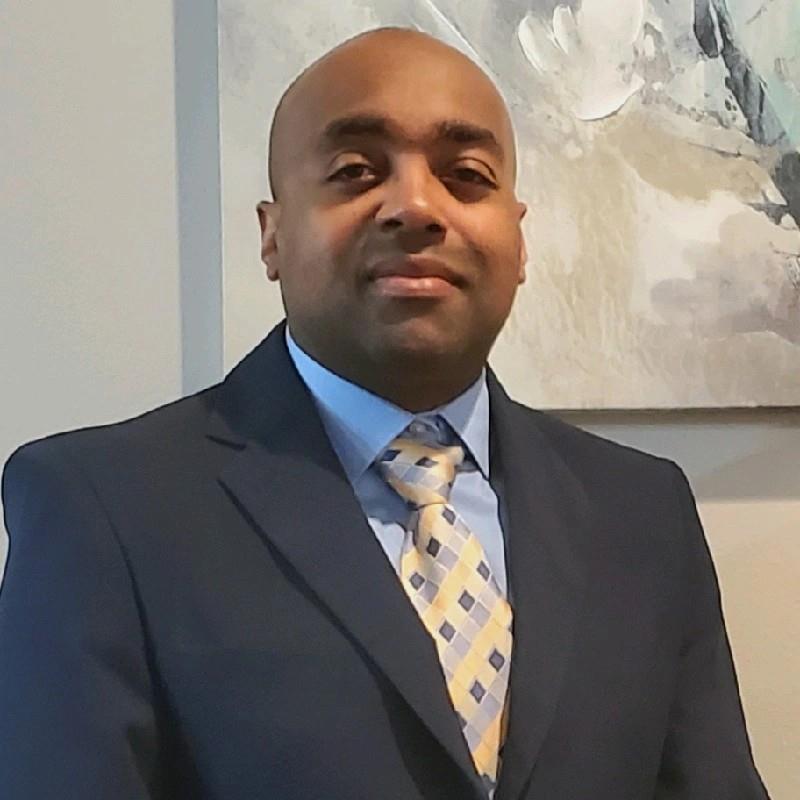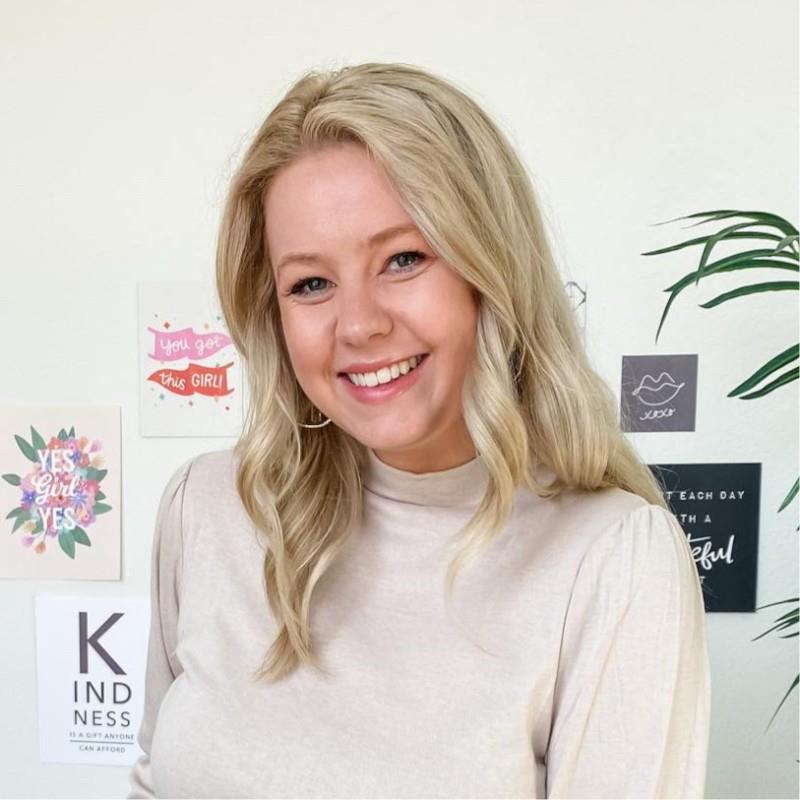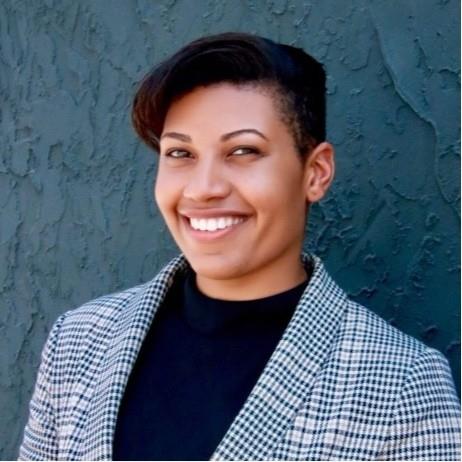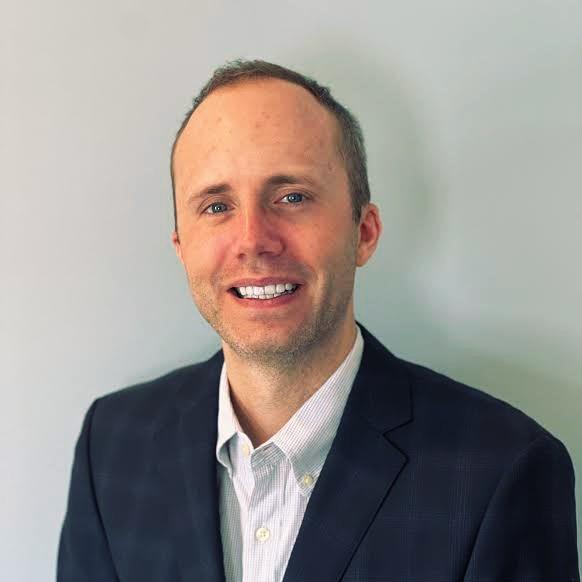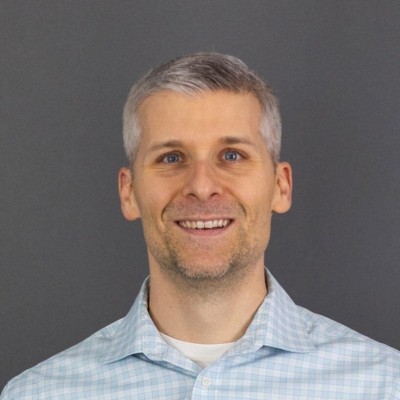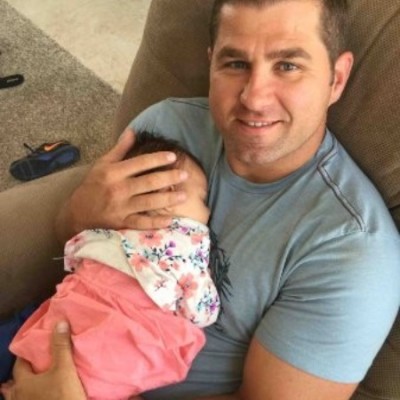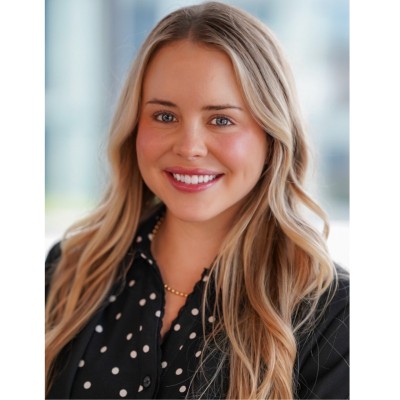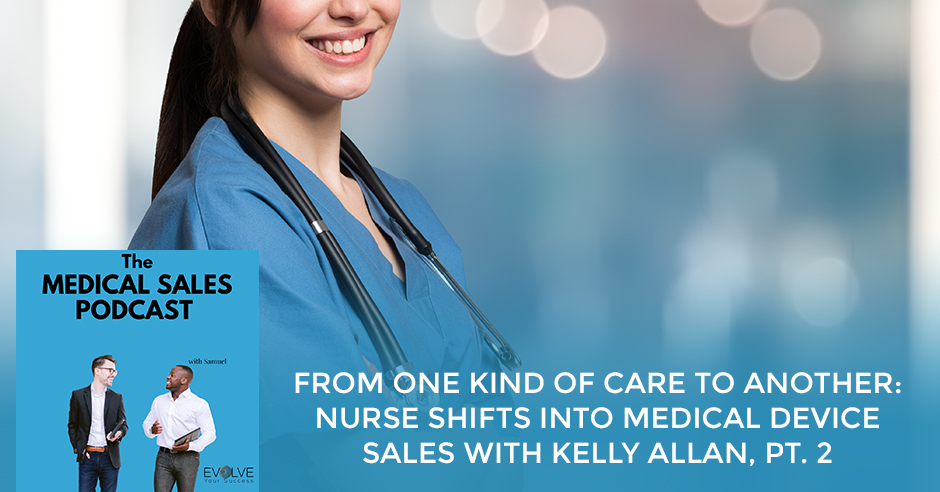
Nursing and medical device sales are both demanding jobs when it comes to scheduling and time management, but in very different ways. Whether you’re willing to change your lifestyle to accommodate the more unpredictable schedule of medical device sales or not is something you might want to consider if you’re thinking about jumping into the role. In continuation of her conversation with Samuel Gbadebo, neuromodulation clinical specialist, Kelly Allan walks us through a day in the life of a medical sales rep from clock-in to clock-out. She also talks about her self-care routine that allows her to stay in top form despite her hectic schedule. Listen in and learn a trick or two from Kelly’s personal time management strategy.
—
Watch the episode here
Listen to the podcast here
From One Kind Of Care To Another: Nurse Shifts Into Medical Device Sales With Kelly Allan, Pt. 2
We come back to you with Part Two with Kelly Allan, as she gets into the transition between going from nurse to medical device sales rep. I’m not going to spoil it. I’m going to let you guys have it. If you can remember where we left off, we were getting into the actual things nurses need to consider before they make their transition, and we’re going to get into some of the day-to-day. Without further ado, thank you for reading. I hope you enjoy the episode.
—
For all the nurses reading this episode, give us in the best light you can, if a nurse is considering getting into the field, what do they need to consider? I’m sure nurses make a lot of assumptions about what the lifestyle is going to be like that you now have the reality on. Go ahead. Side by side, nurse to rep, what needs to be considered? What needs to be not assumed?
There are pros to con to each. For example, when I first started, I thought the schedule was going to be very easy. Coming from twelve-hour shifts, 3 to 4 days a week, or if I picked up extra, it was tiring. I’m not on my feet all the time for 12 or 13 hours a day, 4 days a week, but when you clock out of the hospital as a nurse, you’re done. When you’re done in the OR as a rep or a clinical specialist, you’re not done. People are still calling you, you’re still getting emails, and your response is important. Especially when I was new, I’m like, “I remember when I was a nurse, I didn’t have to answer to anyone when I was done. I talked out and that was it.” Before I clocked in, if you talk to me, I wouldn’t talk to you because I have to wait until I clock in, and then I’m ready. Now, if I’m done in the OR or done seeing my patients, I’m still calling people, returning calls, emails, training, not just training other people, but with medical device, there are always new data and new technology.
It’s keeping up with that, which these days, technology in all the companies is rapidly changing. You’re not only keeping up with your own technology, but you’re also keeping up with your competitors. There are many moving parts, and it can be difficult. If you’re a nurse and you’re willing to have a complete lifestyle change, then go for it. If you like clocking out and being done, this isn’t for you, and I don’t think you’d be happy doing it. Being here for many years, I struggled at first but I’m glad I made the change. I didn’t leave nursing because I didn’t like it. I was young, I had time, I had no kids. Kudos everybody that does that job with kids. I was like, “Let’s try it,” and I was able to make that lifestyle change because I was willing to. That’s my advice.
[bctt tweet=”When you clock out of the hospital as a nurse, you’re done. That’s not necessarily the case if you’re a clinical specialist. ” via=”no”]
Talking about that about the rest of your life, other things outside of work. One thing I want to bring to the forefront is what do you to take care of yourself so that you can continue to get out there, stay connected to your customers, to the patients and serve your territory? What keeps you all in balance?
I eat, I pack a lot. I make sure I have snacks in my car. I eat healthily. I make sure I’m active. Whether it’s going to the gym, which is difficult with COVID because at least in the City of Boston they closed the gyms again. Hopefully, they reopen. Whether it’s running outside, I bought a spin bike. Even if it’s going for a walk, putting out a podcast, pop in your earbuds and going for a walk. Exercise does more than you think. The days where I’m like, “I’m not going to do it. I don’t have time.” When I do exercise, I’m more productive, and you’ve got asleep. You’ve got to get that 7 and 8 hours. I’m a big sleeper. I love sleep. I know when I don’t sleep well, if I go to bed too late, when I have to wake up early, I am not productive enough. I feel like this is a common theme: food, sleep and exercise, but that is going to help you be successful.
It is COVID times, and it’s come up every single conversation I have at some point, and being a field trainer, you’re managing other people. They’re dealing with it too. You’ve told me that this is an elective procedure that you guys are dealing with, meaning you guys might not have the opportunity to work the way you used to. How have you been dealing with it, and how have you been helping those that you manage to deal with it?
When it comes to training, I haven’t been able to train as many people as I would like. Since we came back from COVID in June 2020, I’ve trained 1 to 2 people. I’m training someone from Tennessee. She did her testing and everything. She’s all credentialed and is allowed to be here, but she had to come all the way to Boston to see cases because I happened to be someone who is a field trainer that had a full week of cases. With COVID, we are pretty much back up and running, but it makes it harder to have a schedule, even though in a medical device, you might have your schedule set and it can change. It’s more now because everything is unpredictable.
When we don’t have a lot of cases and I am training someone, I try to give them the most hands-on experience as I can. Over the years, I’ve collected demo equipment. I’ll put on videos, we’ll watch the videos, pause them, and then we’ll go to the demo equipment. We’ll have a spine model, and I’ll give them scenarios and try to prep them as much as I can. It takes so much creativity in this field to do what we need to do, not just in training but even in reaching out to our customers. A lot is virtual. It’s not easy to take your customers out to dinner. A lot of people are uncomfortable. Even though you can go to the restaurants, you can’t hold an advanced practitioner dinner, where you have all the advanced practitioners in the area come to see a presentation, they get to network, meet each other and talk. You don’t have that anymore. It’s a lot of creativity and lifestyle change. It’s hard but it’s working because we’re doing our best.
You’re still out there. You’re still working, so that makes sense.
—
One thing I wanted to do also is capture a full day for everyone curious, especially the nurses. I know your day changes all the time, but give us the most typical day you can have when you’re waking up and all the way to when you’re ending. Tell us everything that happens in between.
I’m going to pick a certain day because there are many different types of days. I’m going to give you a day where I’m in the OR, in the clinics and I might be also home. I’ll start off with I wake up at 5:00 AM, and I need to be ready by 5:45 to get to a hospital for 6:30. At 5:00 AM, when I get out of bed, I have my bowl of oatmeal. If I want to work out in the morning, I will but usually, I’m an afternoon or evening workout type of person. I’ll read my emails in case something came in overnight or if something came in early because if I have a surgery or few surgeries, it’s harder for me to be responsive. I’d make sure I read all those emails before I’m out the door.
I get ready. I get to the surgery at 6:30 even though it doesn’t start until 7:30 because I need to speak to the patient beforehand. Before I speak to the patient, I have to sign in, and that might be on the other side of the hospital. I have to change my scrubs. Those might not be the same scrubs that the OR is wearing, and they might be coming out of a vending machine, and they are paper scrubs. There are a lot of things you have to do before you even get to the patient, and then you want to talk to the patient. It’s better to talk to them before anesthesia gets there, before the doctor gets there because you don’t want to be in their way. You are the guest, but you need to know where their pain is because when you’re in the surgery, you’re going to test this stimulator and you’re going to make sure it’s in the areas of pain that they have.
You want to know because if you’re in there and the doctor says, “Where’s their pain?” then the patient is asleep, so you better know where it is. You get in the case for 7:30, you have your equipment with you that you’ve packed ahead of time, and you’ve also brought it in, I like to call it my body bag. It’s a large bag that I put all my equipment in. I have my equipment in the room. The case happens. Let’s pretend it’s a permanent implant case. It could be 1 or 3 hours, depending. Let’s say there’s another case right after it. I leave the room when all the sutures are being placed. I talk to the next patient in pre-op. I want to talk to them so that I can pre-op the other one before the next one goes into the OR. There’s a lot of time management there.
The same thing, you pre–op them, you talk to the other one, and you go into the next case. You finished that, and now you have to go meet a patient at an office at 11:00 or noon. You make sure that the patient is post-op, they’re all set, answered all their questions, and then you go to an office. You’re meeting patients in the office setting, adjusting their stimulators. Maybe you are seeing 1 or 2, and maybe in the same office, maybe one is an hour away. Your day could end at 3:00 or 4:00, and you had time to check your email again. We don’t do that while we drive. I use my drive time a lot during the day to call people back or call patients.
I do my podcasting in the morning on my way to my procedure because no one’s awake at that time to call me. That’s my day. Let’s say I get home at 4:00 or 5:00. I’m inputting my case information into the computer, answering emails, planning with my manager who’s going to go where in the next few days. Sometimes that’s planned ahead of time, and then the schedule changes. You have to decide, “Who is out of this case tomorrow first to get to this place?” It’s a lot of moving parts and keeping up with the changes, and being flexible to adapt. You might drive two hours away, and the patient doesn’t show up. You’re not going to say to the doctor, “You made me come all the way here.”
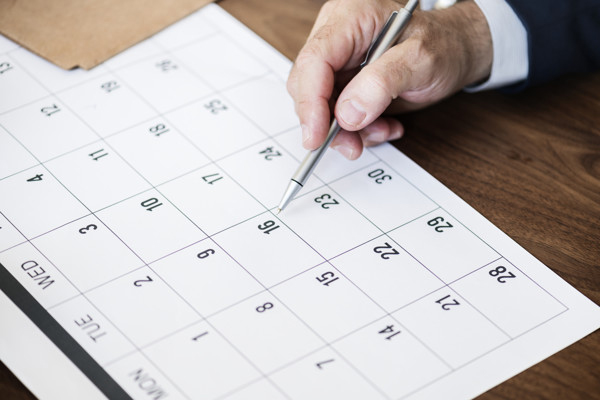
You get to see the doctor, you get to see the staff, the office staff, and you check to see if their brochures are stocked. You can ask them, “Is there anyone that has called the office that needs a stimulator adjustment? Is there anyone I can educate for you? Any candidates for a trial that you’re thinking about that I can call and educate them on the process?” Even if you get there and the patient doesn’t show up, there are plenty you can do. As you can see, there’s so much that can happen during a day, but I feel like I’m still missing a bunch. I’m not going to talk your ear off on that.
What do you mean? That was great. Do you want to say more? Say more.
If you have corporate training modules to do, let’s say there’s a new therapy or you have to do your yearly fire safety, there are deadlines for those, and you might come at home after a ten-hour day and you’re beat. You drove so much, you stood on the OR all day with heavy lead aprons for the X-ray, and you’re tired, but you’ve got to get those deadlines in. I’m making it sound terrible, but I like my job.
This doesn’t sound terrible at all. The way you make it sound is if you get to dance through your day, provide all this value to all these patients and all your customers, and then pick and choose what needs to be worked on when you want to. That sounds ideal. That doesn’t sound terrible at all. For you to be able to end your day around 4:00 or 5:00, conclude with all the administration, and still have time in the night to enjoy your personal life, that’s a blessing.
Sometimes there are nights where you have a conference call at 7:00 or 5:00. If it’s starting at 5:00 over in California and I’m in Boston, it’s a little bit later, but it doesn’t happen often. When it does, it is important but it’s doable.
In a nutshell, what do you love most about your job?
[bctt tweet=”The best part of being a clinical specialist is seeing people’s quality of life improve as their chronic pain gets managed. ” via=”no”]
I like the fact that I can see patients, and I can be part of seeing them go from having no quality of life from their chronic pain to having a successful trial, moving to the implant, and seeing their quality of life improve. This isn’t medicinal, but this is light electricity that’s changing lives, and it’s been around for a long time. The first implant came out in 1967. The technology now, my company has an iPod as a controller. The patient can use their phone if they want to, to have their controller with them. It’s wireless. Technology is crazy.
Kelly, is there anything else you’d like to share with the audience?
I think I put everything out there. You have a great show. If there are any more questions, keep reading.
Thank you so much for spending time with us.
Thank you so much.
Goodbye.
—
Wasn’t that a great episode? What I love about that episode is Kelly took us behind the curtains, and we got to see exactly what goes on in the mind of a nurse when she’s transitioned into the role of a medical device sales rep. There are a couple of things to consider. Scheduling, for one, we have to consider the scheduling. She pointed out that nurses when they check out, they check out and it’s done. They get to go home, get their feet up, relax with whoever, family, dinner, TV, movie, work is done until work starts a different day. In the device world, the work isn’t done because of your customers much more than one patient, your customers, the staff, providers and patients. You have to meet them at all levels to make sure that they have everything they need and can all work together.
You are the brand of the device that is being used to make that marriage go smoothly. It requires a lot from you. This is a completely different set of pace than someone that’s a nurse. That’s something that needs to be considered if you’re thinking about making that transition. No more twelve-hour days, but your weeks might look like one long day because the work is never–ending. The good thing about it though is you do get a little bit more autonomy in when you decide to do the work, but you’re still taking a lot of things home.

Another thing she talked about that’s important that a nurse can bring into a medical device sales role is the bedside manner. That’s a beautiful skill to have because you understand how to talk to the patient. When you’re in a case, and you need to talk to the patient for any reason, like they do with neuromodulation, you’re going to be able to communicate to that patient and help things run smoothly. Whereas a rep that doesn’t have that background is probably going to struggle. Also, the day–to–day, I think about that day. Rewind it if you need to. Can you imagine that day for yourself? When you play it in your head, does it make you happy? Does it make you sad? Do you feel stress? Do you feel the light? These are the things you need to ask yourself because being able to have this interview to shine a light into what you could potentially encounter, can put you in a good position if this is what you want to do. It can keep you in a good position if you realize this is what you do not want to do.
What I want to invite you to even further for all of you nurses reading, is to come and learn what we do here at Evolve Your Success with the Medical Sales Career Builder. If you’re thinking about getting into a program or joining an organization, you’re thinking about saying, “I want to leave the bedside. I don’t want to be a nurse anymore. I want to take the leap,” then you need to come and visit us at EvolveYourSuccess.com and select Attain A Medical Sales Role, where you can get into a link that’s going to take you to an actual client group session where you see exactly how we help you get those roles.
If you’re someone that’s been on the fence and you’ve been trying to make this happen, you’ve put the word out there, people know you’re interested, but for whatever reason, you’re not making it through the interview process, or you’re not even getting the interviews, things aren’t happening. You need to go to EvolveYourSuccess.com and select Attain A Medical Sales Role. Get on a time block with us where you can see exactly what we do and how we help professionals like yourself get positions.
If you want to reach out to me directly, you can go to LinkedIn and look for Samuel Adeyinka. If you want to reach out to the lovely Kelly Allan, she is available on LinkedIn as well, and you can look her up, Kelly Allan, a Clinical Specialist, and she’ll come right up. You can ask her questions as well. As always, I am proud and happy to bring you these guests and to have these great conversations about how you can get closer to your dreams and make things happen in the year 2021. Make sure to stay tuned for another episode with another wonderful guest. Thank you for reading.
Important Links:
Love the show? Subscribe, rate, review, and share!
Join the Medical Sales Podcast Community today:
